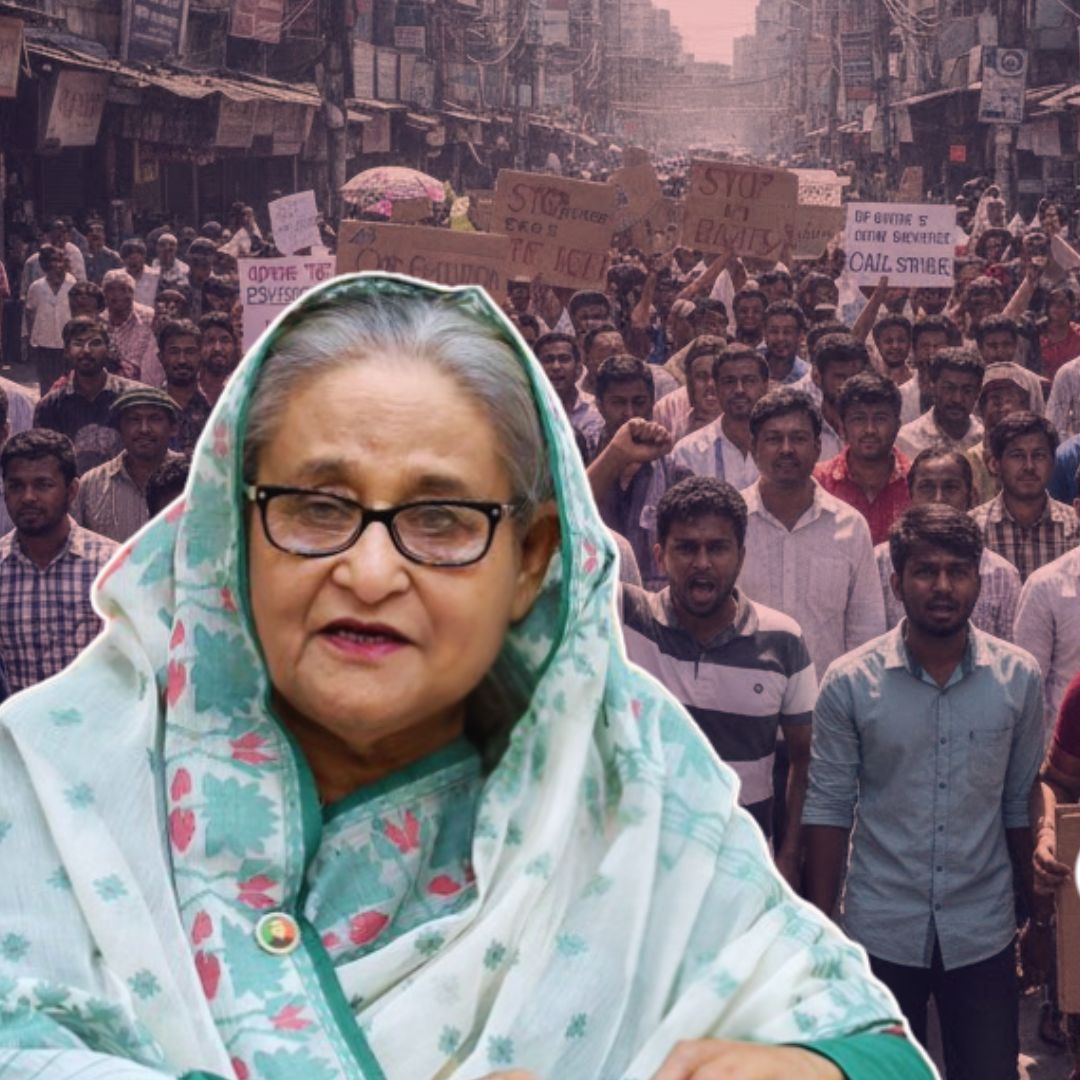Bangladesh is witnessing a political crisis of unprecedented scale following the International Crimes Tribunal’s death sentence against former Prime Minister Sheikh Hasina, triggering a nationwide protest movement led by her party, the Awami League.
The ruling party has declared protests and resistance programmes across the country until November 30, vehemently rejecting the verdict as unjust and politically motivated.
The interim government, headed by Chief Adviser Muhammad Yunus, is facing increasing pressure, with the formal request for Hasina’s extradition lodged with India.
This turmoil reveals the deep fissures in Bangladesh’s political fabric, fuelling concerns about the country’s stability and democratic future.
Nationwide Protests and Political Mobilisation
Since the tribunal’s verdict announcement on November 17, the Awami League has mobilised supporters in mass protests, shutdowns, and street demonstrations, calling for the resignation of the interim government and the reversal of the sentence.
Large-scale protests disrupted daily life, with transport services halted and businesses shuttered in major cities including Dhaka.
The party condemns Yunus as a “usurper” and “killer-fascist,” accusing him of manipulating the tribunal to eliminate political rivals ahead of the scheduled general elections in February 2026.
Senior Awami League figures, such as party secretary Obaidul Quader, have described the tribunal’s actions as a travesty of justice and vowed to continue the agitation until Hasina’s release and political rehabilitation.
The government, meanwhile, has deployed security forces to curb unrest and maintain order, though confrontations and arrests have been reported.
The protests have rapidly evolved into a broader resistance movement with frequent shutdown calls and sit-ins. The Awami League’s use of lockdowns echoes their previous political strategies during Hasina’s rule, intended to disrupt normalcy and demonstrate the extent of public support.
The government claims the protest impact is exaggerated but acknowledges the tense atmosphere. Yunus defends the court’s proceedings, stating they adhered to international standards and are essential for justice and accountability.
Despite the tension, both parties have avoided outright violent clashes on a large scale so far, though isolated incidents have increased.
Background of the Trial and Political Context
The charges leading to Hasina’s death sentence stem from allegations of crimes against humanity carried out during the violent student-led protests and government crackdown between July and August 2024 that led to Hasina’s ousting after 15 years in power.
The tribunal, operating amidst charged political conditions, ruled Hasina and her former home minister guilty of orchestrating killings and abuses. Hasina, who has been in exile in India since August 2024, has consistently denied the allegations, describing the trial as politically motivated retribution.
This tribunal verdict marks a critical turning point in Bangladesh’s post-liberation political history, marked by an intense rivalry between Hasina’s Awami League and opposition forces.
The interim government, formed under Yunus, promises reforms and elections but faces skepticism from Hasina’s support base who view the regime as illegitimate.
Human rights groups and international observers have criticised the tribunal’s impartiality and transparency, calling for fair appeal mechanisms amidst concerns that the judicial process is being used as an instrument in political power struggles.
The regional geopolitical implications are significant, with India being urged to extradite Hasina and manage the diplomatic sensitivity of hosting a politically vulnerable figure.
Government Measures and International Dimensions
To manage the escalating unrest, the interim government has heightened security around sensitive installations and political hotspots. The formal extradition request to India represents a key move in trying to legally secure Hasina’s return to Bangladesh for detention or further trial.
Indian officials have maintained a cautious stance, highlighting respect for international law and bilateral relations while monitoring the situation.
Regional actors and international observers express concern about the risk of political violence and instability potentially spilling over borders, urging dialogue and restraint.
The international community has called for all stakeholders in Bangladesh to prioritise peaceful conflict resolution and respect fundamental democratic rights.
Some human rights organisations have underscored the importance of judicial fairness in upholding legitimacy and have voiced apprehension over any further use of the judiciary for political ends.
The unfolding political crisis places Bangladesh at a crossroads, challenging its democratic institutions and governance framework as it prepares for a critical election.
The Logical Indian’s Perspective
Bangladesh’s current crisis reveals the dangers when political vendettas overshadow justice and democratic processes.
The Logical Indian emphasises that sustainable peace and democratic health require transparent judicial proceedings, respect for human rights, and inclusive political dialogue. Retaliation and confrontation must give way to reconciliation and trust-building for the wellbeing of millions affected by this unrest.
Both the interim government and former ruling party should pause to reflect on the devastating impact of continued polarisation and seek pathways that embrace coexistence and national healing.












